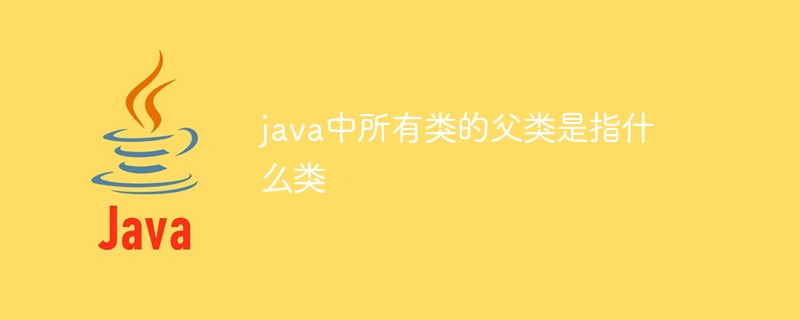
In Java, the parent class of all classes is the Object class, which provides standard members and methods to ensure code consistency and cross-platform portability. The Object class provides basic members (such as hashCode) and methods (such as equals and toString), allowing custom classes to easily add additional functionality.

The parent class of all classes in Java: Object class
In Java, all classes inherit directly or indirectly Since the Object class, the Object class is the foundation of the class hierarchy. This means that all classes have members and methods defined by the Object class.
Members of Object class
Static fields:
class : Return the Class object representing the object of this class. Instance field:
hashCode: Returns the hash code of the object. Basic methods of the Object class
equals(Object): Compare two objects for equality. getClass(): Returns the Class object representing the object of this class. hashCode(): Returns the hash code of the object. notify(): Wake up a thread that is waiting for this object to be locked. notifyAll(): Wake up all threads waiting for this object to be locked. toString(): Returns the string representation of the object. wait(): Put the calling thread into a blocking state until the lock of this object is awakened or the wait times out. Main benefits of inheriting from the Object class
The above is the detailed content of What is the parent class of all classes in Java?. For more information, please follow other related articles on the PHP Chinese website!
 What are the advantages of SpringBoot framework?
What are the advantages of SpringBoot framework?
 Detailed explanation of linux dd command
Detailed explanation of linux dd command
 What are the attributes of a tag?
What are the attributes of a tag?
 Ubuntu startup black screen solution
Ubuntu startup black screen solution
 How to set up virtual memory
How to set up virtual memory
 What to do if css cannot be loaded
What to do if css cannot be loaded
 What does Jingdong plus mean?
What does Jingdong plus mean?
 How to solve the problem of vs2008 installation failure
How to solve the problem of vs2008 installation failure
 Detailed explanation of onbeforeunload event
Detailed explanation of onbeforeunload event




